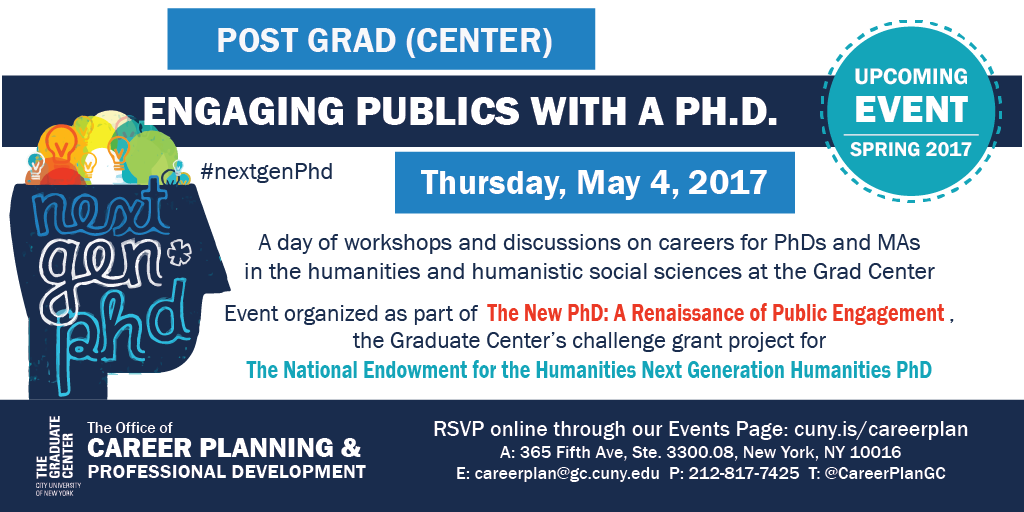We’re thrilled to announce the official schedule for our May 4 event Post Grad (Center): Engaging Publics with a PhD.
View the full schedule of events with all participating panelists and RSVP on our event page.


We’re thrilled to announce the official schedule for our May 4 event Post Grad (Center): Engaging Publics with a PhD.
View the full schedule of events with all participating panelists and RSVP on our event page.

On January 30, the Project Directors from the various institutions participating in the NEH Next Generation Humanities PhD met to discuss the progress of their projects. In morning and afternoon working groups, each institution’s current obstacles and action plans were discussed among the project directors.
We want to share the Graduate Center’s takeaways from these discussions, as they will serve as a key point of discussion for our February Project Steering Committee Meeting.
As “The New PhD: A Renaissance of Public Education” gets underway, we thought it would be beneficial to highlight some components of our three planning themes: (1) curriculum, (2) data, and (3) partnerships. By centering our project on these three themes, we hope to align our aims with those of the Next Generation Humanities Ph.D.